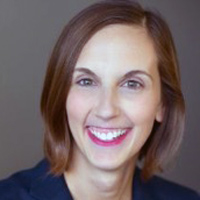Is the End of Jobs Coming? Employees Beware
Entrepreneurship is a path that more workers could find themselves on soon, like it or not. Survival strategies are required for self-starters, and those who’d rather keep their jobs.


Profit and prosper with the best of Kiplinger's advice on investing, taxes, retirement, personal finance and much more. Delivered daily. Enter your email in the box and click Sign Me Up.
You are now subscribed
Your newsletter sign-up was successful
Want to add more newsletters?

Delivered daily
Kiplinger Today
Profit and prosper with the best of Kiplinger's advice on investing, taxes, retirement, personal finance and much more delivered daily. Smart money moves start here.

Sent five days a week
Kiplinger A Step Ahead
Get practical help to make better financial decisions in your everyday life, from spending to savings on top deals.

Delivered daily
Kiplinger Closing Bell
Get today's biggest financial and investing headlines delivered to your inbox every day the U.S. stock market is open.

Sent twice a week
Kiplinger Adviser Intel
Financial pros across the country share best practices and fresh tactics to preserve and grow your wealth.

Delivered weekly
Kiplinger Tax Tips
Trim your federal and state tax bills with practical tax-planning and tax-cutting strategies.

Sent twice a week
Kiplinger Retirement Tips
Your twice-a-week guide to planning and enjoying a financially secure and richly rewarding retirement

Sent bimonthly.
Kiplinger Adviser Angle
Insights for advisers, wealth managers and other financial professionals.

Sent twice a week
Kiplinger Investing Weekly
Your twice-a-week roundup of promising stocks, funds, companies and industries you should consider, ones you should avoid, and why.

Sent weekly for six weeks
Kiplinger Invest for Retirement
Your step-by-step six-part series on how to invest for retirement, from devising a successful strategy to exactly which investments to choose.
Let’s be honest. One of your primary goals is to build long-term wealth, right?
Wealth building is based on two factors: earnings and expenses. When you are satisfied with your career, you have a higher likelihood of earning more money. If dissatisfied, it is that much more difficult to increase your earnings.
Taylor Pearson contends in his book, The End of Jobs: Money, Meaning and Freedom without the 9-5, that entrepreneurship is one way to increase earnings. Many entrepreneurs start businesses to solve a problem or fill a need in the marketplace. Or, like Steve Jobs, they create demand for something new, like smartphones and tablets. Regardless, the work they do matters.
From just $107.88 $24.99 for Kiplinger Personal Finance
Become a smarter, better informed investor. Subscribe from just $107.88 $24.99, plus get up to 4 Special Issues

Sign up for Kiplinger’s Free Newsletters
Profit and prosper with the best of expert advice on investing, taxes, retirement, personal finance and more - straight to your e-mail.
Profit and prosper with the best of expert advice - straight to your e-mail.
Pearson defines entrepreneurship as “connecting, creating, and inventing systems — be they businesses, people, ideas, or processes.” A job, however, is “the act of following the operating system someone else created.”
From the beginning, Pearson touches on some important points.
1. We could very well be at the “end of jobs.”
Pearson argues that “largely abundant, high-paying jobs that characterized the second half of the twentieth century” are gone. In fact, non-routine cognitive positions are the only growing job segment. Traditional university degrees from the bachelor to Ph.D. level are plentiful, thereby decreasing their value.
2. Globalization is both a curse and a blessing.
Pearson describes the rise of micro-multinational companies: small entrepreneurial endeavors that can source talent globally for a fraction of the price they’d find in the U.S. For U.S.-based workers in traditional jobs, this is scary. Yet this is the world in which we live; entrepreneurs who are willing to embrace this opportunity could experience tremendous growth.
3. Entrepreneurs operate in a different domain than traditional employees.
Pearson refers to Dave Snowden’s Cynefin framework, separating work into distinct domains: simple, complicated, complex and chaotic. He contends that many traditional workers live in the complicated domain. This is where the “relationship between cause and effect requires analysis and investigation” but can be solved through existing measures.
By contrast, the complex domain is emergent, where many entrepreneurs find themselves. Here, the relationship between cause and effect is only clear in retrospect. The demand for people operating in the complex and chaotic systems (aka entrepreneurs) is higher than ever before.
The powerlessness of being an employee
As an employee, you are essentially giving an employer complete control over 100% of your earnings. Your boss could end your employment in a moment’s notice. Entrepreneurship is a different beast altogether. In a product-based business, one customer will not dictate whether your business stays open or permanently closes. However, the struggle is real for service-based businesses with a single client comprising 50% or more of revenue. In these cases, enormous effort should be exerted to diversify the client base.
While I agree with many of Pearson’s arguments philosophically, I’m not sold. He paints a bleak picture for traditional employees.
Strategies for those who don’t want to be entrepreneurs
In my opinion, not everyone is destined to become an entrepreneur. Take my husband, Bryan, for example. He is hard-working and committed to grow professionally and personally. However, he doesn’t yearn for the entrepreneurial lifestyle. He enjoys making a valuable contribution to a larger organization. He finds meaning in the 9-to-5 and works for a company that is growing. The lack of freedom does not bother him as much.
Are you similar to Bryan? Maybe you can create an “intrapreneurship” model within an established company that promotes risk-taking and fresh approaches. Or you could serve an important role in a new, fast-growing small business.
What we all can do to maximize success
Whether you follow the path to entrepreneurship or stay in a more traditional position, focus on items within your control. Amplify your strengths and live out passions through work. Find a role that aligns with your values and unique gifts.
Not there yet? Consider the financial planning process. Define goals and carve a new professional path. If you’re an employee who dreams of entrepreneurship, create a financial plan that will make your dream a reality. The same rationale applies to anyone in a job transition. Map out concrete steps to change roles (i.e., save $4,000 by Aug. 30). Reframe your “emergency fund” as an “opportunity fund” to embark on a new adventure.
Profit and prosper with the best of Kiplinger's advice on investing, taxes, retirement, personal finance and much more. Delivered daily. Enter your email in the box and click Sign Me Up.

Deborah L. Meyer, CFP®, CPA/PFS, CEPA and AFCPE® Member, is the award-winning author of Redefining Family Wealth: A Parent’s Guide to Purposeful Living. Deb is the CEO of WorthyNest®, a fee-only, fiduciary wealth management firm that helps Christian parents and Christian entrepreneurs across the U.S. integrate faith and family into financial decision-making. She also provides accounting, exit planning and tax strategies to family-owned businesses through SV CPA Services.
-
 Betting on Super Bowl 2026? New IRS Tax Changes Could Cost You
Betting on Super Bowl 2026? New IRS Tax Changes Could Cost YouTaxable Income When Super Bowl LX hype fades, some fans may be surprised to learn that sports betting tax rules have shifted.
-
 How Much It Costs to Host a Super Bowl Party in 2026
How Much It Costs to Host a Super Bowl Party in 2026Hosting a Super Bowl party in 2026 could cost you. Here's a breakdown of food, drink and entertainment costs — plus ways to save.
-
 3 Reasons to Use a 5-Year CD As You Approach Retirement
3 Reasons to Use a 5-Year CD As You Approach RetirementA five-year CD can help you reach other milestones as you approach retirement.
-
 The 4 Estate Planning Documents Every High-Net-Worth Family Needs (Not Just a Will)
The 4 Estate Planning Documents Every High-Net-Worth Family Needs (Not Just a Will)The key to successful estate planning for HNW families isn't just drafting these four documents, but ensuring they're current and immediately accessible.
-
 Love and Legacy: What Couples Rarely Talk About (But Should)
Love and Legacy: What Couples Rarely Talk About (But Should)Couples who talk openly about finances, including estate planning, are more likely to head into retirement joyfully. How can you get the conversation going?
-
 How to Get the Fair Value for Your Shares When You Are in the Minority Vote on a Sale of Substantially All Corporate Assets
How to Get the Fair Value for Your Shares When You Are in the Minority Vote on a Sale of Substantially All Corporate AssetsWhen a sale of substantially all corporate assets is approved by majority vote, shareholders on the losing side of the vote should understand their rights.
-
 How to Add a Pet Trust to Your Estate Plan: Don't Leave Your Best Friend to Chance
How to Add a Pet Trust to Your Estate Plan: Don't Leave Your Best Friend to ChanceAdding a pet trust to your estate plan can ensure your pets are properly looked after when you're no longer able to care for them. This is how to go about it.
-
 Want to Avoid Leaving Chaos in Your Wake? Don't Leave Behind an Outdated Estate Plan
Want to Avoid Leaving Chaos in Your Wake? Don't Leave Behind an Outdated Estate PlanAn outdated or incomplete estate plan could cause confusion for those handling your affairs at a difficult time. This guide highlights what to update and when.
-
 I'm a Financial Adviser: This Is Why I Became an Advocate for Fee-Only Financial Advice
I'm a Financial Adviser: This Is Why I Became an Advocate for Fee-Only Financial AdviceCan financial advisers who earn commissions on product sales give clients the best advice? For one professional, changing track was the clear choice.
-
 I Met With 100-Plus Advisers to Develop This Road Map for Adopting AI
I Met With 100-Plus Advisers to Develop This Road Map for Adopting AIFor financial advisers eager to embrace AI but unsure where to start, this road map will help you integrate the right tools and safeguards into your work.
-
 The Referral Revolution: How to Grow Your Business With Trust
The Referral Revolution: How to Grow Your Business With TrustYou can attract ideal clients by focusing on value and leveraging your current relationships to create a referral-based practice.